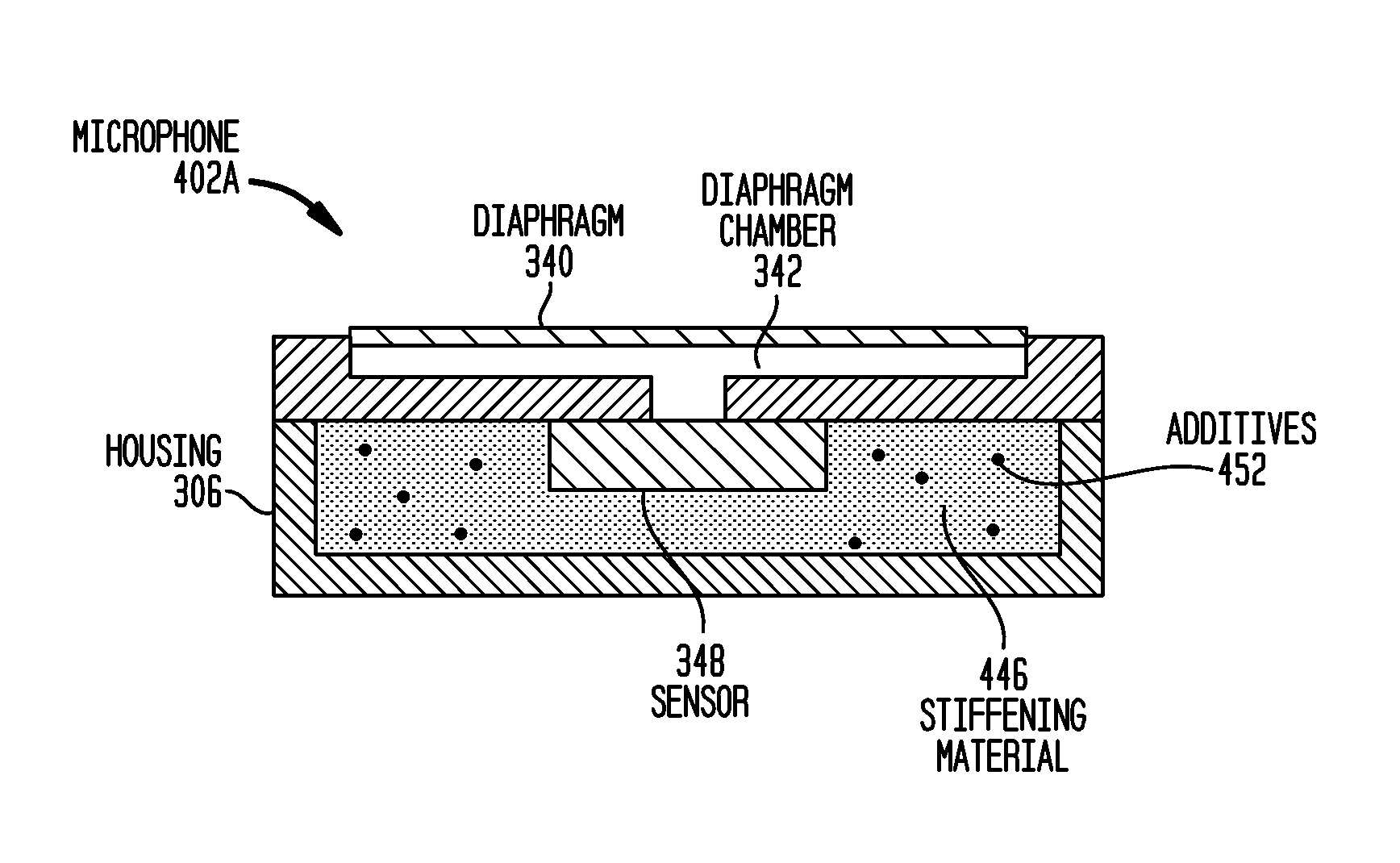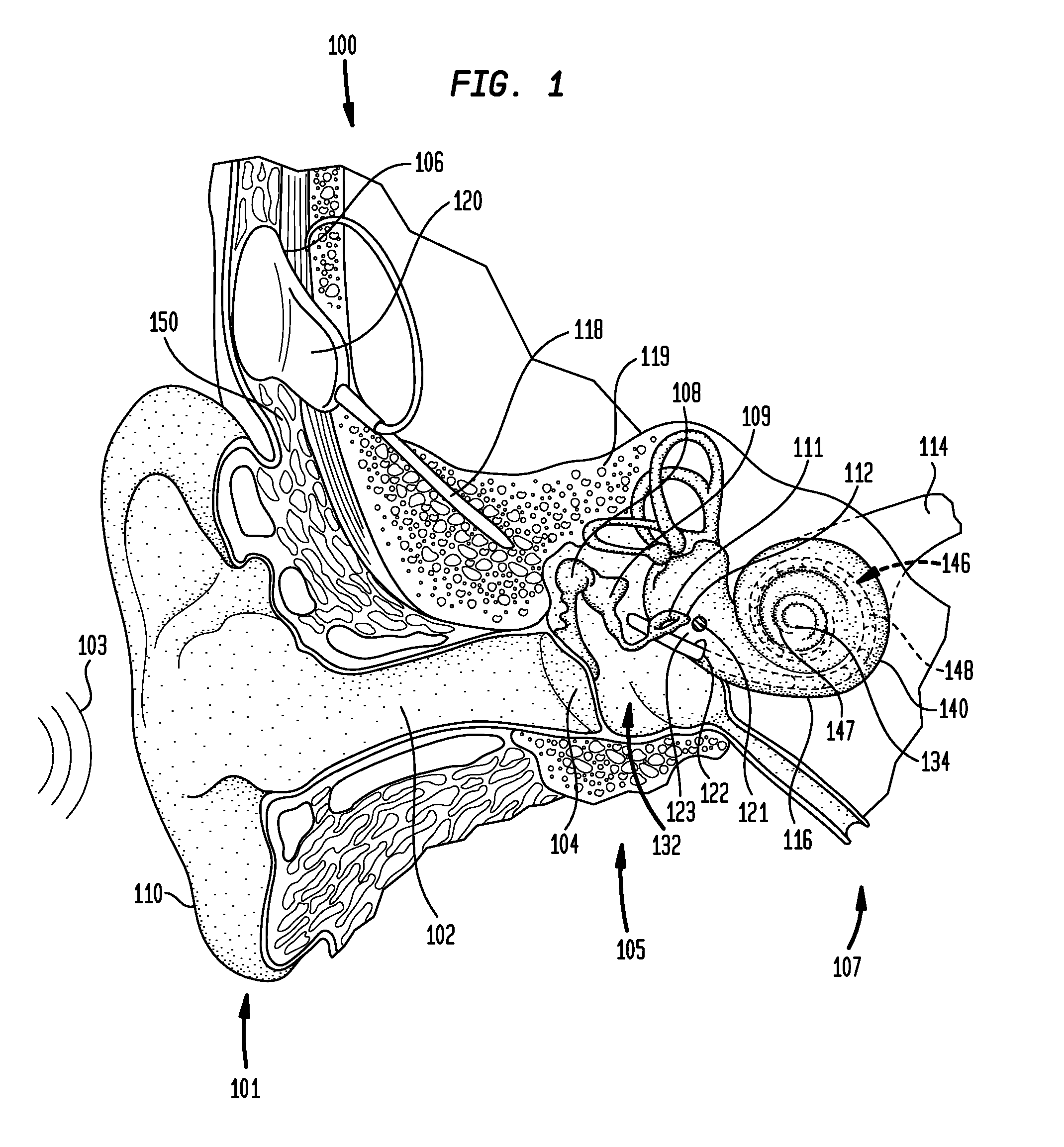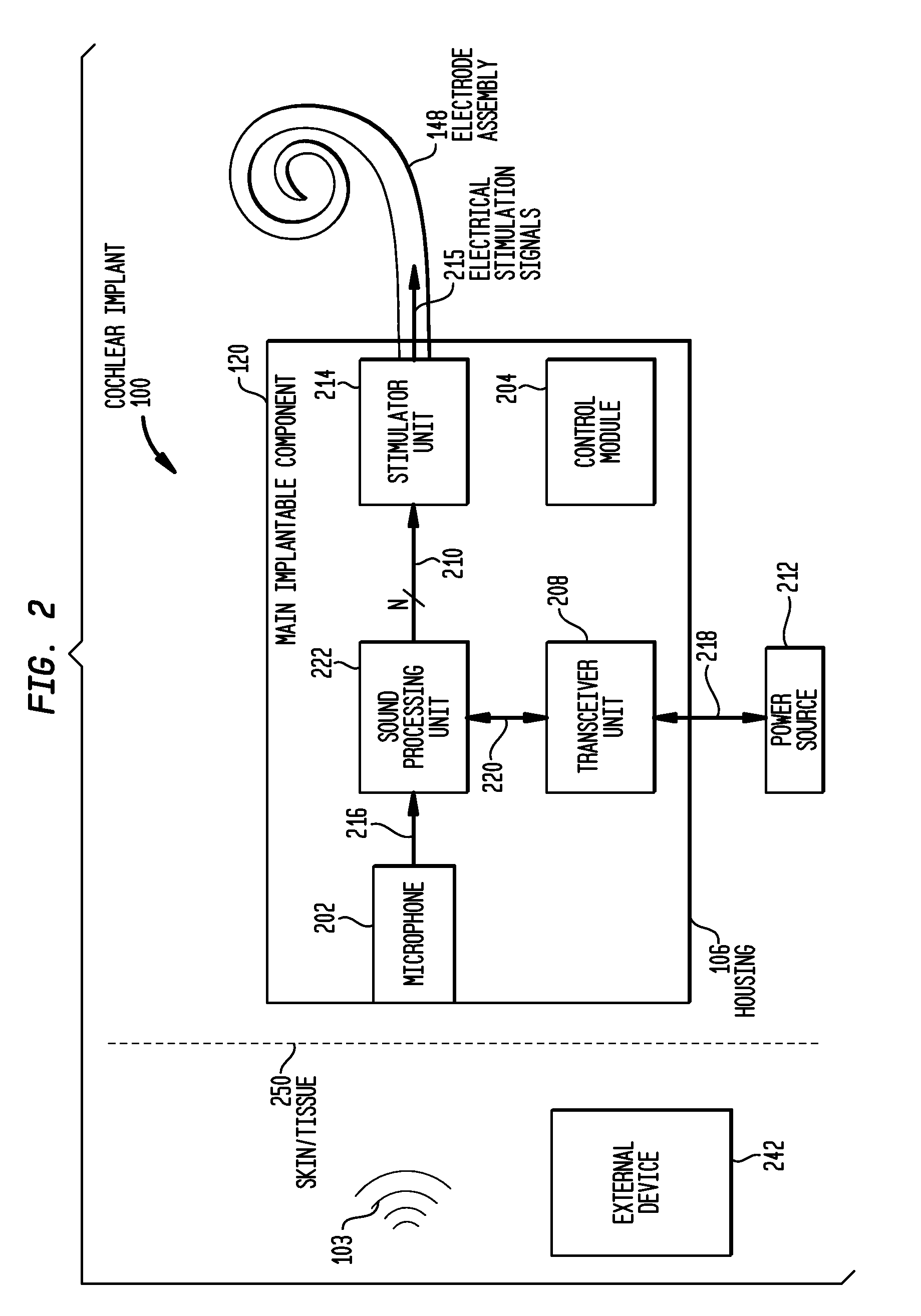Implantable microphone for an implantable hearing prothesis
a technology microphone, which is applied in the field of implantable hearing prosthesis, can solve the problems of conductive hearing loss, impeded normal mechanical pathway that sound travels to reach the cochlea, and deafness sensorineural hearing loss, and achieve the effect of resisting deformation
- Summary
- Abstract
- Description
- Claims
- Application Information
AI Technical Summary
Benefits of technology
Problems solved by technology
Method used
Image
Examples
Embodiment Construction
[0023]Aspects of the present invention are generally directed to a subcutaneous microphone for an implantable hearing prosthesis. The subcutaneous microphone is implanted under a recipient's skin and / or tissue so as to receive a desired acoustic sound signal. The microphone comprises a housing having a diaphragm chamber formed therein, and an aperture extending from the exterior surface of the housing to the chamber. A diaphragm is disposed on the exterior of the housing so as to seal the aperture. The diaphragm is configured to receive sound signals and a sensor is positioned at an end of the chamber opposing the diaphragm so as to detect vibration, deflection, etc. of the diaphragm. A stiffening material substantially fills the regions of the housing external to the sensor such that that air gaps within the filled regions are substantially eliminated.
[0024]As described below, embodiments of the present invention may utilize different stiffening materials to substantially fill the ...
PUM
| Property | Measurement | Unit |
|---|---|---|
| density | aaaaa | aaaaa |
| elastic modulus | aaaaa | aaaaa |
| density | aaaaa | aaaaa |
Abstract
Description
Claims
Application Information
 Login to View More
Login to View More - R&D
- Intellectual Property
- Life Sciences
- Materials
- Tech Scout
- Unparalleled Data Quality
- Higher Quality Content
- 60% Fewer Hallucinations
Browse by: Latest US Patents, China's latest patents, Technical Efficacy Thesaurus, Application Domain, Technology Topic, Popular Technical Reports.
© 2025 PatSnap. All rights reserved.Legal|Privacy policy|Modern Slavery Act Transparency Statement|Sitemap|About US| Contact US: help@patsnap.com



